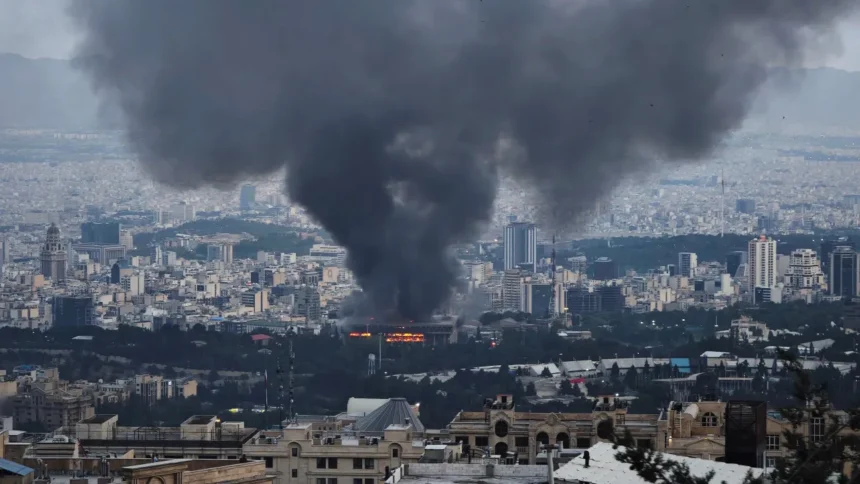Tensions between Iran and Israel surged on Monday as Israeli airstrikes continue to hit targets across Tehran, including the headquarters of Iran’s state broadcaster.
In response, Iran has made a dramatic appeal to U.S. President Donald Trump, urging him to intervene and stop Israel’s offensive.
Iran’s Foreign Minister Hossein Amir-Abdollahian said in a televised statement on Monday, “One phone call from Washington to silence Netanyahu’s war machine can end this bloodshed.”
He added that Iran had contacted Qatar, Saudi Arabia, and Oman to relay this appeal to Trump, who is seen in Tehran as having close ties to the Israeli Prime Minister.
The Israeli military confirmed the strike on the Islamic Republic of Iran Broadcasting (IRIB) headquarters. An army spokesperson said the facility was “being used for command and control functions linked to the IRGC” — Islamic Revolutionary Guard Corps.
According to Reuters report, the building was hit just before 3:00 a.m., knocking national broadcasts off the air temporarily.
This comes just days after Israel launched ‘Operation Rising Lion,’ a surprise campaign aimed at crippling Iran’s nuclear and military infrastructure.
Israeli Prime Minister Benjamin Netanyahu told his war cabinet Sunday night, “We are eliminating the masterminds of terror. Iran will not be allowed to threaten Israel with nuclear weapons.”
In retaliation, Iran launched more than 150 ballistic missiles and 100 armed drones toward Israel on Saturday. Iran’s Revolutionary Guard said in a public statement that the barrage was “a demonstration of a new offensive strategy to overwhelm enemy defenses.”
The United Nations reports at least 224 Iranians, mostly civilians, and 24 Israelis have been killed since Friday. In Tehran, Reuters journalists observed long fuel lines, panicked residents leaving the city, and damaged civilian infrastructure.
“We are terrified,” said Laleh Mohammadi, a school teacher in Tehran, in an interview with The Associated Press. “The city is not safe. There’s no fuel, no cash in banks, and people are fleeing.”
At the G7 summit in Canada, the conflict has become a key issue. A senior European Union official told Reuters, “This is the most dangerous moment in the Middle East in years. Diplomacy must take over before the region collapses into wider war.”
Although Iran’s foreign ministry said nuclear talks with the U.S. have been suspended, Amir-Abdollahian signaled a willingness to return if the violence ends: “If the war stops, diplomacy can begin again.”
With Agency Reports





